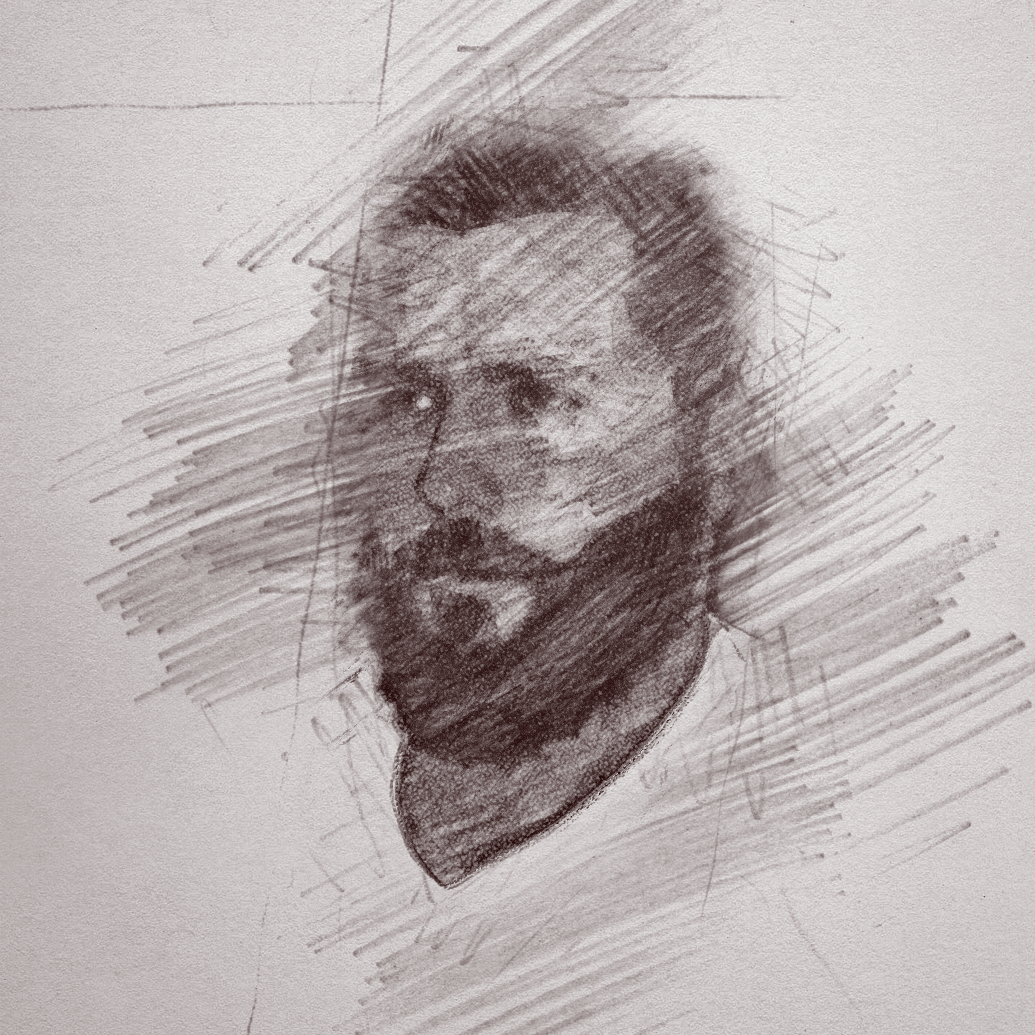Craig had a song stuck in his head and needed to do what he could to stop thinking about it, so he wrote some thoughts on the classic Robert Burns poem and folk traditional song, “Auld Lang Syne.” Other topics Craig covers in this letter include the New Year holiday, Christmas, nostalgia as a sentiment and Nostalgia™ as a prescription drug, Owen Wilson and the completely ridiculous and over-the-top fantastic Michael Bay popcorn movie classic, Armageddon, and William Shakespeare.
I’ve been thinking about Auld Lang Syne.
Without going into the long history of the impossible not to know song, Auld Lang Syne is a Scots-language poem written in 1788 by the Bard of Ayrshire, the Ploughman Poet, the Soul of Scotland, Robert Burns and set to the melody of a traditional folk song. Parts of the poem and, of course, its sentiment existed long before the young Rabbie “borrowed” and added his own lyrics that he later turned in to James Johnson at the Scots Musical Museum but, for the most part, we have him to thank for the song sung in the present. After it was published, it quickly became a favorite of Scots and customary to sing at Hogmanay (also known as New Year’s Eve) and soon spread to the English, the Welsh, and the Irish, who all subsequently brought the tradition with them as they emigrated around the world.
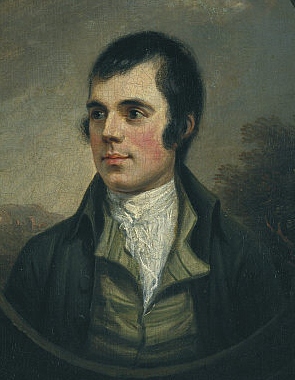
Each New Year, after largely forgetting about it for 11.5 months, I’m struck by how much I like the old traditional. Each year, I wonder why it’s not heard more often in American life and why I don’t force it to make more appearances in my personal life (I do remember we sang it in the Boy Scouts at the end of some of the big events). And why not? A song can be sung at any time. There’s no requirement that a cultural cornerstone is to be only celebrated at a particular moment even if the particular moment is the cause celebre for the cultural cornerstone.
No, I don’t have a particular favorite version. I enjoy hearing a crowd sing it together. I’m comforted by Julie Andrews’ soprano as it pirouettes through the years. I could sit quietly next to a fire with a glass of whiskey and drift off to Dougie MacLean’s soft timbre as YouTube’s interminable algorithm takes over.
I suppose, due to its proximity, Auld Lang Syne has been unfairly maligned. A casualty of contiguity. Lumped together with the Christmas songs and tossed in the half-ripped cardboard boxes held together by duct tape bought during the Reagan administration on top of the cheap plastic ornaments and the lights that will be wrapped and tied perfectly but, when they’re pulled back out of the attic next year, are guaranteed to be twisted into a knot that would impress a Phrygian.
But Auld Lang Syne is not a Christmas song. A Christmas standard is far more specific and linked to seasonal or religious prerequisites. That’s why we look down on the neighbor who keeps the Christmas lights on the house a bit too long.
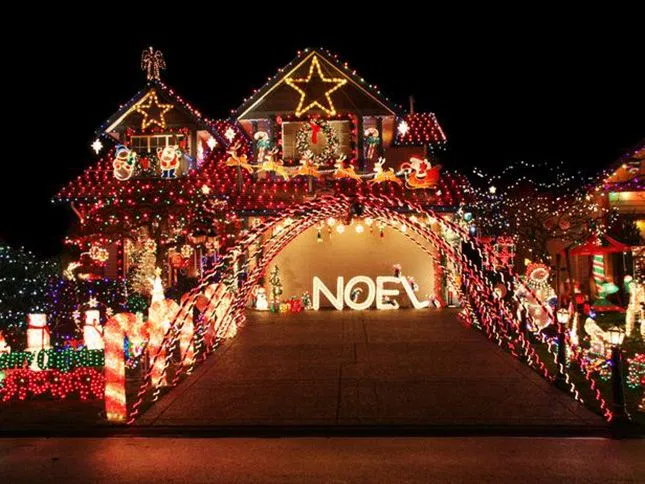
I also suppose that part of Auld Lang Syne’s magic rests somewhere in its power to induce nostalgia and bring long-hidden memories from the depths to the surface. Sure, given the right context and depending on individual memory, a Christmas song can provide a proper pang of nostalgia but so can any number of melodies or popular music. But I would challenge anyone to name me a singular Christmas song that can evoke the same universal visceral reaction that Auld Lang Syne delivers.
And Auld Lang Syne is not a New Year’s song even if it’s THE New Year’s song. What I mean by that is it wasn’t written for the occasion or the season as most Christmas songs have been. Over the last couple of centuries, the music has become almost a holy hymn to a moment lost in a twilight of time where, like the day, the year is not yet gone and not yet come. It just so happens to have the je ne sais quoi, the seemingly quintessential combination of the sad and the sweet that blends so well with that ethereal moment where the clock strikes and the calendar turns. A mysterious quality that makes it a perfect accompaniment for the moment, where it serves almost as a bookend in a rotunda library. To the ouroboros, the point where the teeth bites the tail.
It’s a song with a unique ability to be heard as a somber song of reflection while, at the same time, it can be heard as a song of hope for the future. And it’s a subtle nod to the latter that it’s actually the first song you hear in the New Year, not the last you hear in the old. A song of goodbye, a call of forge on, a peak where the explorer can rest and gather himself and take in his surroundings. To not only look back upon the path he’s traveled, but look forward to the unknown landscape ahead. Or perhaps better said, a craggy platform in the mountaineer’s eternal climb, where he pauses to look down before once again turning his face toward Heaven and his next foothold.
Maybe it’s just me? Overwhelmed by the aforementioned moment of nostalgia for yet another piece of life left, another breadcrumb tossed on the floor of the forest, another length of Ariadne’s thread drawn in the dark. And how would I know any alternative? I’ve only lived life with Auld Lang Syne as part of the soundtrack. All I’ve known came after Guy Lombardo and his Royal Canadians cemented the tradition firmly in the modern American commercial spectacle that New Year’s Eve has become.
It’s possible. I doubt it, but it’s possible.
I do admit, I’m a sucker for nostalgia. I can’t help it. A victim, maybe, although that doesn’t sound like the right word. As I view it, a person could be confused into thinking nostalgia to be a fine drug. It sounds like a prescription you’d see advertised during daytime television.
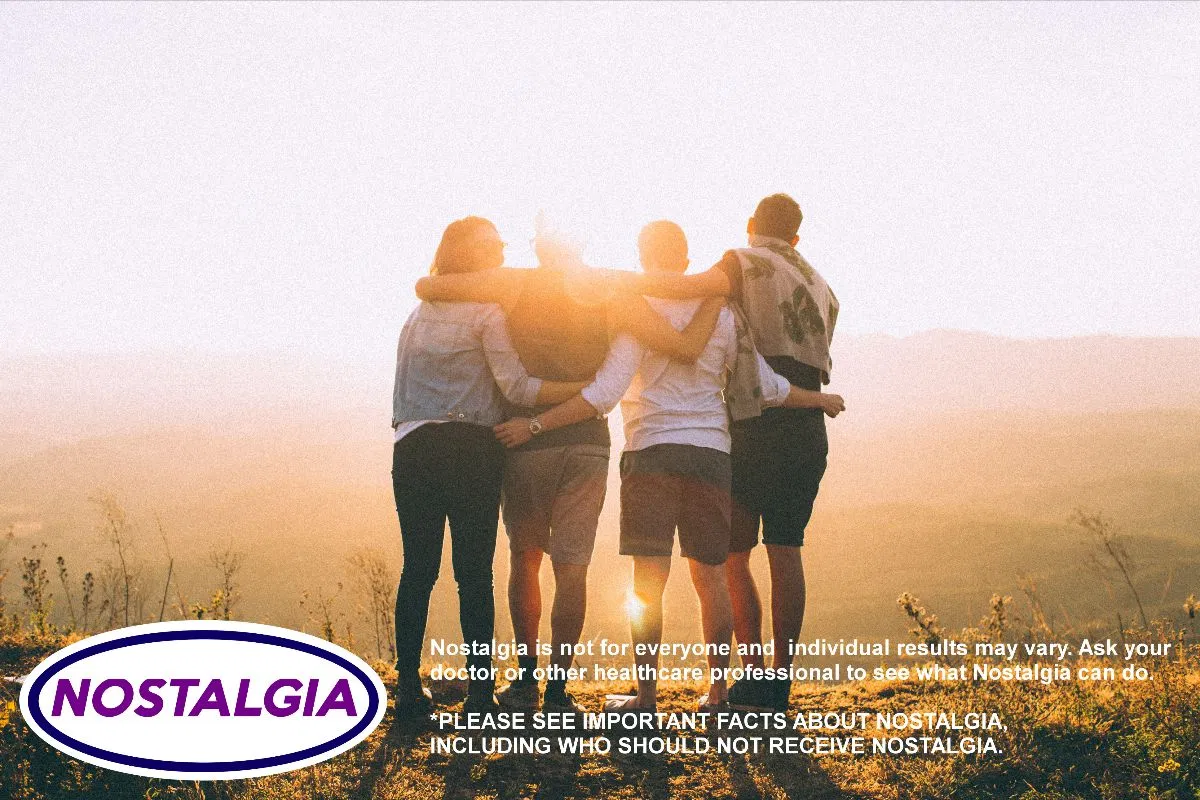
But nostalgia isn’t the drug. The drug is life, lived. Man, alive. A person doesn’t get nostalgic during bliss. That’d be silly. Nostalgia is the withdrawal from the drug. Withdrawal from life experienced.
Like a drug withdrawal, nostalgia is a dirty little trick but a good one. A trick to get you to crave what’s not there. To want it. Need it. To be so overcome by the lack of it that you demand more and ignore all rhyme, reason, and sense to get more. Nostalgia is the longing to return…the pang…the hunger of the soul…to return to the something that caused the heart to beat a little harder, the laugh to be a little louder and last a little longer, the mind to focus a little tighter. A yearn to return to the freedom to feel life grab hold of you and let it take you and show all its gifts and possibilities. For if you could just get back to that…time…that place…those moments, it would fill the absence in the present and make it all better.
But, and there’s always a ‘but,’ just as with any drug and any withdrawal, when we’re lost in this nostalgia and we look back with this indescribable fondness for the perceived better, we forget, intentionally or unintentionally, conscious or unconscious, the moments that weren’t ideal or didn’t go as planned. We forget what we went through to get the drug in the first place. The time, sacrificed. The money, wasted. The relationships, strained. The difficult and the treacherous can be so easy to forget and who wants to remember that…stuff? As Doug Larson, the long-time journalist from Door County, Wisconsin said, “Nostalgia is a file that removes the rough edges from the good old days.”
Further, how many times can we really return to an old experience? Like under control of a drug, once the body is used to a certain amount, the addict needs more in order to get the next level high. So is nostalgia something that’s there to drive us to the bigger and the better, again and again, that ultimately leads to our destruction? Or a type of comeuppance?
But that, too, seems so black and white, does it not? It can’t be something so simple. Do we dismiss nostalgia as foolish? That its only purpose is negative and to hold us back or cause us harm? Do we only look forward? None of us can go back, after all. Impossible. And even if, theoretically, we could, there’s no guarantee that changes to events of the past would return us to our present self with just those unsightly little bits missing, swept under the rug. In fact, the ultimate conclusion is most certainly the opposite. That any little change made would create an avalanche of difference until our present self and life would be unrecognizable and incomprehensible.
Of course, we’re too smart for that. It’s never that simple.
One of the reasons I’m a willing sucker for nostalgia and try to allow myself to feel it is it’s a reminder of just how much life I once felt flow through me. A reminder of how many laughs I once held inside. And, when I focus on it hard enough it allows me to remember, most importantly, how so many more there are to come. For whenever I look back on a particular memory I try to pause and think harder about the lost moment that came just before the images, thoughts, feelings, and sensations I actually remember. I’m rarely able to recall them, of course, it would have been the memory if I could but, for me, it’s become something akin to a prayer. Because never once in the lost moments before my greatest memories have I known what was truly coming. Never once as the dawn broke have I known what the day would bring and never once as it expired have I known what would wait for me on the other side. Never once. The best moments in my life have been unexpected…
But no matter how hard I try to reach through the mist of my poor memory to only grab hold of the good, the bad are there, too. The worst moments in my life have also been unexpected…and the most honest I can be with myself is to realize and confront the reality that there are more of the bad coming all the same as the good. Knowing this, it’s the little calm moments in the eternal before where I try to focus and prepare to react to the inevitable good and bad storms. After the storm, too many forget the calm.
As I’ve grown, it’s these subtle lost memories that have become some of my new favorites to try and capture and focus. A return to the center. The addict attempting to get as sober as possible. If only to, selfishly, learn to appreciate smaller and smaller amounts of the drug of life. I certainly remember all the storms, just as much any other person, but it’s the acknowledgment, however muted, of my naivete and ignorance, where the outcome and possibilities were endless. And it makes me hopeful to know there are more new experiences coming, no matter how small, and, further down the line, an experience that is guaranteed to make me feel nostalgic anew. New experiences that may not end well and that may not end as anything significant at all, but where I rest in awe in the anticipation of what they could become. In awe before the inescapable unknowns and the undiscovered unforgettables. And that new nostalgia will be the direct result of life, lived.
There’s a quote I use way too often from Owen Wilson’s character in the completely ridiculous and over-the-top fantastic Michael Bay popcorn movie, Armageddon. As he’s getting strapped into the rocket, another character asks how he’s feeling and he replies, “I’m great! I got that excited/scared feeling. Like 98% excited, 2% scared. Or maybe it’s more…it could be…it could be 98% scared, 2% excited but that’s what makes it so intense. It’s so – confused! I can’t really figure it out…”
If we focus hard enough, every single moment of our lives could be described that way.
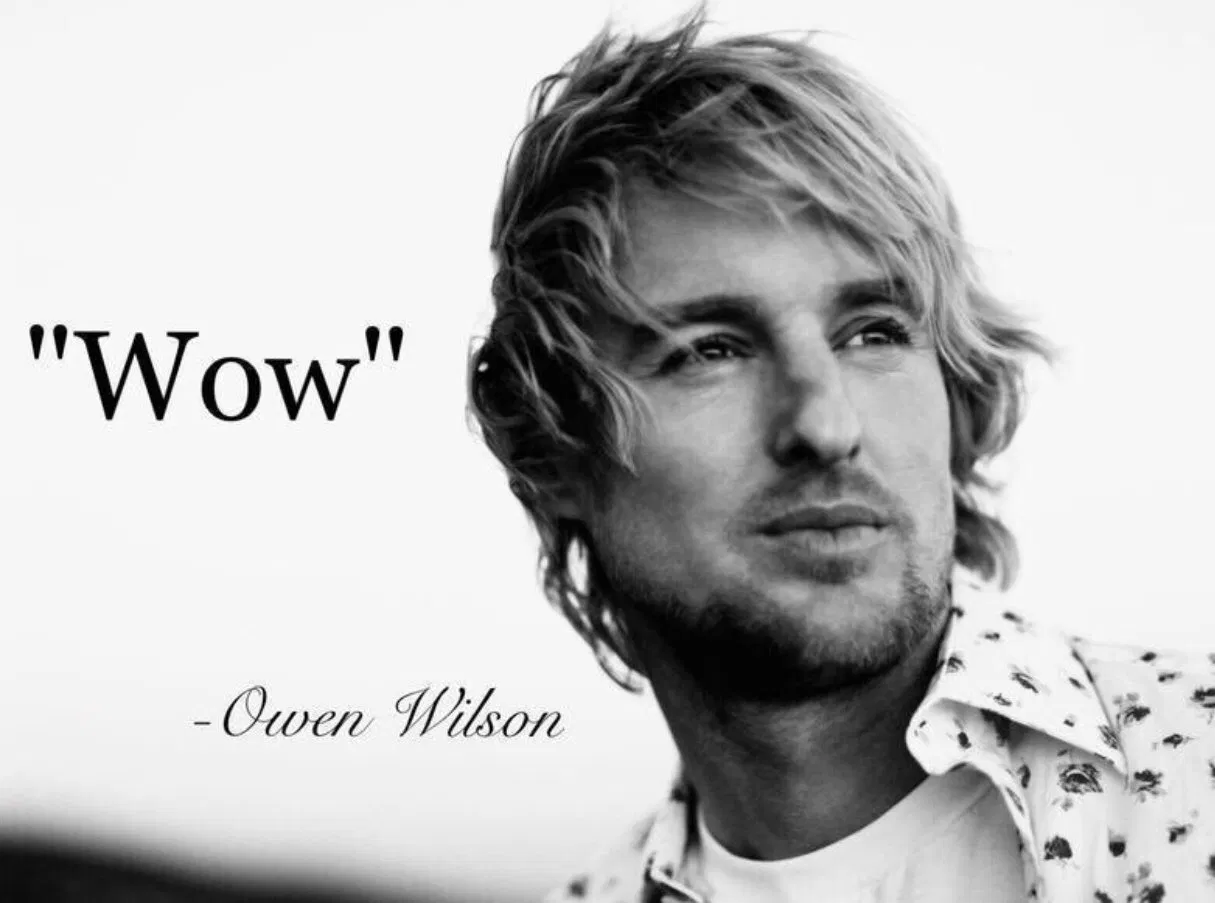
I’m not saying anything new, of course. This can generally be summed up and easier understood with, “it’s the little things,” but there’s no fun in that. And, sometimes, we need to wade through the superfluous redundancies and get lost on the way in order to get somewhere proper.
Ultimately, this all adds up to the individual’s realization that he’s more than a mere individual. That he’s not just an individual but that he’s part of a family. That he’s not just an individual and part of a family but also a part of a community. That the Trinity outside reflects the Trinity inside.
What matters, and always has, is the time spent together. Whether we’ve lived together directly as in a marriage or simply lived on this world at the same time, just as we all have a home we all have a place in the long line before and the long line beyond.
As a pretty good writer pointed out, all the world’s a stage. We have our exits and our entrances and, in our time, each of us will play many parts, but the stage stays the same and, if we’re being honest, so do the stories. But that doesn’t mean our time on the stage is worth any less than any other’s and, I think, it’s an acknowledgment from Burns’ lyrics that it’s the opposite. That we should be honored to share the stage with these acquaintances. And further, to walk the same floors and trace the steps of these same lines that wind back through the ages to the beginning. The long thread through the dark. The realization that we’re all still just sitting around the eternal campfire telling each other stories and making each other laugh or cry or wonder to keep warm and make it through another night just like all those that came before. That maybe this day too, in some far off future, will be a long, long ago to sing for.
Which finally brings me back to the tradition of Auld Lang Syne. We need these little traditional reference points to bind us and keep the knot strong. To remind us of the stage or the fire we’re forever around together. Always. We’re all old acquaintances, whether we know each other or not. Whether we shared a common time or not.
Burns’ lyrics never fully declare whether the days long since were “good,” nor do they denounce them as “bad.” Burns implores us to, just for a moment, let it all go and raise a glass to something as sad and sweet as memory itself. Sure, once upon a time they picked the daisies together, but that was a long time ago and a lot has happened in the in between. Sure, once upon a time we shared a river all day, but now we are a sea apart. No, we can’t go back but no matter. We shared that time. And, more than that, someone shared life with us once whether we knew them well or never knew them at all. We may never be here again but we’re worth a cheer because we are. So raise a glass, friend.
As I mentioned at the beginning, now that this is done, I’ll likely forget about Auld Lang Syne again until a few seconds before midnight when the sudden moment of nostalgic clarity washes over me as it feels as if the whole world begins singing in tune to a simple song we all know despite never having practiced together or even never having met the people next to us. Try to remember, I’ll be singing along.
And I hope you sing with the world. For the world sings for you.
For old time’s sake.
